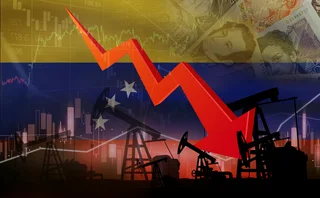Assessing nuclear risk in the aftermath of Fukushima
Assessing nuclear risk

The meltdown at the Japanese Fukushima Daiichi nuclear generator following the March 11 earthquake and tsunami is likely to result in financial losses comparable to, if not greater than, the losses experienced by some merchant banks during the recent financial crisis.
The Fukushima incident clearly demonstrates that a reactor accident can be the single largest financial risk facing the chief risk officer (CRO) of a nuclear generating company, far outpacing market, credit, and operational risks
More on Risk management
Interest in battery and flexibility soars in European energy markets
Energy traders are structuring bespoke contracts around Bess and flexibility that facilitate new ways of managing and sharing risk in this nascent market
Interview: Abaxx’s Joe Raia on LNG, Corsia and wind contracts
Abaxx’s Joe Raia talks to Energy Risk at E-World 2026 about the performance of its LNG and Corsia contracts and its latest wind contracts
Axpo interview: the rise of flexibility contracts in European power
Axpo’s Domenico Franceschino talks to Energy Risk about flexibility contracts, battery optimisation and the role of risk management in valuing these bespoke products
Energy firms revisit CTRM systems as tech advances
Energy executives mull how to tap into the explosion of new technologies entering the risk space, but systems selection must consider future business needs, writes Yefreed Ditta at Value Creed
CRO interview: Brett Humphreys
Brett Humphreys is head of risk management at environmental markets specialist Karbone. He talks to Energy Risk about the challenges of modelling outcomes in unpredictable times and how he’s approaching the risks at the top of his risk register
How geopolitical risk turned into a systemic stress test
Conflict over resources is reshaping markets in a way that goes beyond occasional risk premia
Energy Risk Debates: the influence of risk culture
The panellists examine different risk cultures and discuss the risk manager’s role and influence in creating a risk culture
Energy Risk reaction: Venezuela and oil sanctions
Energy Risk talks to Rob McLeod at Hartree Partners about the energy risk implications of the US’s control of Venezuelan oil







